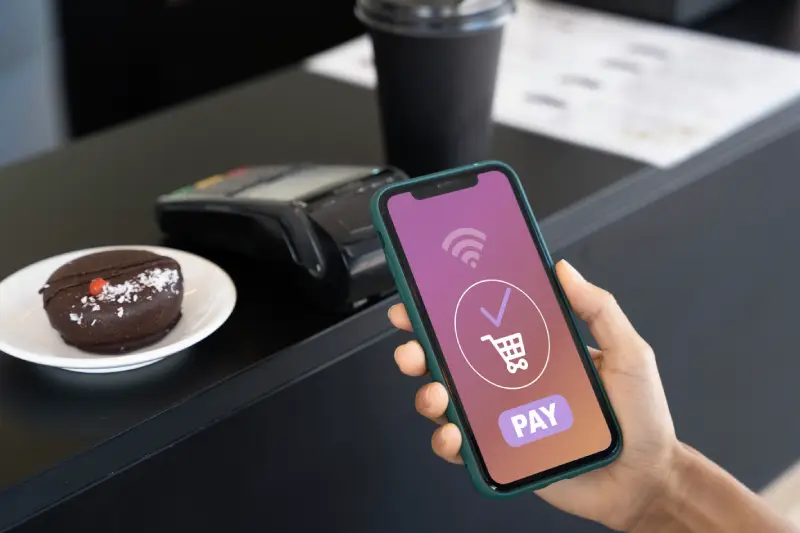In today’s fast-paced, globally connected world, mobile applications are a crucial resource for businesses of all sizes. Small businesses can significantly benefit from mobile applications to improve client engagement, increase efficiency, and broaden reach. To ensure their competitiveness in the market, small business owners must keep up with the latest trends in app development.
From discovering the latest trends in app development for small businesses to understanding the importance of app development for small businesses, we will reveal everything in this in-depth guide.
From cutting-edge technology like augmented reality (AR) and virtual reality (VR) to the revolutionary potential of Internet of Things (IoT) integration, you will get to know the latest Innovative app development trends for small businesses. But that’s not all; we’ll also go into the significance of seamless user experiences, the growth of cloud-based apps, and the potentially game-changing capabilities of artificial intelligence (AI) and machine learning (ML).
Let’s explore the latest app development trends and realize your small business’s full potential.
Importance of App Development for Small Businesses

Here is the importance of app development for small businesses:
• Improved Customer Interaction
 Customers can now interact with businesses conveniently and individually through mobile apps. By following app development trends, small businesses can add user-friendly interfaces, seamless navigation, and personalized suggestions, which will improve the client experience.
Customers can now interact with businesses conveniently and individually through mobile apps. By following app development trends, small businesses can add user-friendly interfaces, seamless navigation, and personalized suggestions, which will improve the client experience.
• Provides Competitive Edge
 Keeping up with the top mobile app development trends for businesses is crucial. Businesses can stand out and attract more clients using the newest technologies and functions, such as augmented reality (AR), virtual reality (VR), or voice interfaces.
Keeping up with the top mobile app development trends for businesses is crucial. Businesses can stand out and attract more clients using the newest technologies and functions, such as augmented reality (AR), virtual reality (VR), or voice interfaces.
• Increased Customer Engagement and Loyalty
 Mobile applications allow businesses to create direct lines of connection with their clients. Small companies may interact with their consumers more effectively, create customer loyalty, and boost repeat business by using push notifications, in-app messaging, and loyalty programs.
Mobile applications allow businesses to create direct lines of connection with their clients. Small companies may interact with their consumers more effectively, create customer loyalty, and boost repeat business by using push notifications, in-app messaging, and loyalty programs.
• Operational Efficiency and Streamlining
 One of the most popular app development benefits is enhancing operational efficiency. Small businesses can automate tedious processes, streamline operations, and boost productivity by incorporating cutting-edge technologies like artificial intelligence (AI), machine learning (ML), and the Internet of Things (IoT) into their apps.
One of the most popular app development benefits is enhancing operational efficiency. Small businesses can automate tedious processes, streamline operations, and boost productivity by incorporating cutting-edge technologies like artificial intelligence (AI), machine learning (ML), and the Internet of Things (IoT) into their apps.
• Increased Market Reach
 Thanks to mobile applications, businesses can connect with more people outside their immediate area. Small businesses can increase their market reach, draw in new clients, and break into new markets by implementing multilingual assistance, geolocation services, and localized content.
Thanks to mobile applications, businesses can connect with more people outside their immediate area. Small businesses can increase their market reach, draw in new clients, and break into new markets by implementing multilingual assistance, geolocation services, and localized content.
• Cost-effective Marketing and Promotion
 Mobile applications provide small businesses with marketing and advertising options. Businesses can efficiently market their goods or services to a focused audience without spending much money using features like in-app advertising, mobile-specific promotions, and social media integration.
Mobile applications provide small businesses with marketing and advertising options. Businesses can efficiently market their goods or services to a focused audience without spending much money using features like in-app advertising, mobile-specific promotions, and social media integration.
Now, you know the significance of mobile apps for small businesses. Next, let’s discover the latest trends in app development for small businesses.
Popular Mobile App Trends for Small Businesses

Here are some of the most popular mobile app trends for small businesses:
• Progressive Web Apps (PWAs)
 Web applications known as “Progressive Web Apps” (PWAs) provide a user experience comparable to native mobile apps. They don’t require installation and may be viewed through a web browser. PWAs provide app-like functionality like offline access, push notifications, and device hardware integration to small companies as a cost-effective approach to connect clients across multiple platforms (desktop and mobile).
Web applications known as “Progressive Web Apps” (PWAs) provide a user experience comparable to native mobile apps. They don’t require installation and may be viewed through a web browser. PWAs provide app-like functionality like offline access, push notifications, and device hardware integration to small companies as a cost-effective approach to connect clients across multiple platforms (desktop and mobile).
• Virtual reality (VR) and Augmented reality (AR)
 Virtual reality (VR) and augmented reality (AR) technologies are becoming more widely available and can offer distinctive experiences for small businesses. Businesses can promote their products or offer engaging experiences by using augmented reality (AR), which can be used to overlay digital information or virtual objects over the real environment. On the other hand, virtual reality (VR) immerses users in a wholly virtual world and may be used for immersive brand experiences, simulations, or virtual tours.
Virtual reality (VR) and augmented reality (AR) technologies are becoming more widely available and can offer distinctive experiences for small businesses. Businesses can promote their products or offer engaging experiences by using augmented reality (AR), which can be used to overlay digital information or virtual objects over the real environment. On the other hand, virtual reality (VR) immerses users in a wholly virtual world and may be used for immersive brand experiences, simulations, or virtual tours.
• Voice Interfaces and Chatbots
 These technologies are quickly gaining popularity and can change how businesses engage with their clients thoroughly. Mobile apps with voice-based interactions or chatbot features enable businesses to deliver individualized, hands-free experiences, quick customer assistance, and regular job automation. This trend will increase client interaction, boost productivity, and simplify operations for small firms.
These technologies are quickly gaining popularity and can change how businesses engage with their clients thoroughly. Mobile apps with voice-based interactions or chatbot features enable businesses to deliver individualized, hands-free experiences, quick customer assistance, and regular job automation. This trend will increase client interaction, boost productivity, and simplify operations for small firms.
• Digital Wallets and Mobile Payments
 With the development of digital wallets and mobile payments, small companies can now provide simple and safe payment choices within their applications. By integrating well-known payment gateways or digital wallet services, the checkout process may be simpler, less complicated, and more enjoyable for users. This trend can assist small businesses in drawing in more clients and is consistent with the rising desire for cashless purchases.
With the development of digital wallets and mobile payments, small companies can now provide simple and safe payment choices within their applications. By integrating well-known payment gateways or digital wallet services, the checkout process may be simpler, less complicated, and more enjoyable for users. This trend can assist small businesses in drawing in more clients and is consistent with the rising desire for cashless purchases.
• User Engagement and Personalization
 Personalization is key to the success of mobile apps. Businesses may provide personalized suggestions, information, and experiences that cater to individual interests by utilizing user data. Features that improve user engagement, promote loyalty, and boost conversion rates include personalized product recommendations, notifications, and targeted offers.
Personalization is key to the success of mobile apps. Businesses may provide personalized suggestions, information, and experiences that cater to individual interests by utilizing user data. Features that improve user engagement, promote loyalty, and boost conversion rates include personalized product recommendations, notifications, and targeted offers.
• Integration of AI and ML
 AI and ML technologies allow small businesses to automate processes, make wise suggestions, and examine user behavior. Mobile apps with AI-powered features can improve user experiences, streamline processes, and provide individualized services. Integration of AI and ML is one of the most popular small business mobile app trends, which includes predictive analytics, intelligent search, and recommendation engines.
AI and ML technologies allow small businesses to automate processes, make wise suggestions, and examine user behavior. Mobile apps with AI-powered features can improve user experiences, streamline processes, and provide individualized services. Integration of AI and ML is one of the most popular small business mobile app trends, which includes predictive analytics, intelligent search, and recommendation engines.
• Enhanced Security and Privacy
 Users anticipate strong security measures as data breaches and privacy issues become increasingly common. By using safe authentication procedures, encryption technologies, and compliance with data protection laws (including the GDPR), small businesses should prioritize the security of their mobile apps. It is also vital to gain user consent for data collection and processing and to present clear privacy rules.
Users anticipate strong security measures as data breaches and privacy issues become increasingly common. By using safe authentication procedures, encryption technologies, and compliance with data protection laws (including the GDPR), small businesses should prioritize the security of their mobile apps. It is also vital to gain user consent for data collection and processing and to present clear privacy rules.
It’s crucial to remember that while these trends have a lot of promise, small businesses should first consider how they fit into their unique needs, target market, and industry criteria. Additionally, staying updated with the upcoming trends in small business app development will let you stay competitive and modify your applications to meet changing customer expectations.
After knowing popular mobile app trends for small businesses, you should also consider some vital app development strategies for small businesses while building your app.
Most Effective App Development Strategies for Small Businesses

Here are some effective strategies for small businesses on app development:
• Define Your Goals
 Assess your app development project’s objectives. What do you hope your software will accomplish? Whom do you want to reach? What characteristics are crucial? By responding to these questions, design a roadmap for your app development project.
Assess your app development project’s objectives. What do you hope your software will accomplish? Whom do you want to reach? What characteristics are crucial? By responding to these questions, design a roadmap for your app development project.
• Keep it Brief and Pertinent
 Maintain simplicity and business relevance in your app. Only attempt to make your app accomplish a little. Concentrate on the essential attributes that benefit your clients and advance your corporate objectives.
Maintain simplicity and business relevance in your app. Only attempt to make your app accomplish a little. Concentrate on the essential attributes that benefit your clients and advance your corporate objectives.
• Focus on UX
 The success of your app depends on its user experience (UX). Ensure your software is simple to use, logical, and visually appealing. A smooth user experience keeps consumers interested and makes sure they return back to your app.
The success of your app depends on its user experience (UX). Ensure your software is simple to use, logical, and visually appealing. A smooth user experience keeps consumers interested and makes sure they return back to your app.
• Plan Your App
 Carefully consider your app development project. Establish the project’s scope, make a schedule, and allot resources. Ensure you have a dedicated team of app developers to manage the project from beginning to end.
Carefully consider your app development project. Establish the project’s scope, make a schedule, and allot resources. Ensure you have a dedicated team of app developers to manage the project from beginning to end.
• Get it Approved on the App Store
 After creating your app, you must get the app store to approve it. Ensure your software complies with the app store criteria by following the rules. This will make your software more likely to be accessible and simple to download for your users.
After creating your app, you must get the app store to approve it. Ensure your software complies with the app store criteria by following the rules. This will make your software more likely to be accessible and simple to download for your users.
• Focus on app store optimization (ASO)
 ASO is optimizing your app to appear higher in the app store search results. This can help your app become more visible and encourage more downloads. Optimize the title, description, keywords, and screenshots to increase your app’s ASO.
ASO is optimizing your app to appear higher in the app store search results. This can help your app become more visible and encourage more downloads. Optimize the title, description, keywords, and screenshots to increase your app’s ASO.
The Future of App Development for Small Businesses
 The future of app development for small businesses is bright enough. To engage with clients, 42% of small businesses want to develop mobile apps in the future. This indicates that more small businesses are realizing the value of mobile apps for interacting with their target market. Additionally, small businesses can now design mobile apps more quickly and affordably. Small businesses can create profitable mobile applications that will draw users and aid in accomplishing their corporate objectives by using the appropriate app development tactics. Small businesses should embrace this trend since the future of mobile app development is promising for more significant consumer interaction, brand loyalty, and revenue.
The future of app development for small businesses is bright enough. To engage with clients, 42% of small businesses want to develop mobile apps in the future. This indicates that more small businesses are realizing the value of mobile apps for interacting with their target market. Additionally, small businesses can now design mobile apps more quickly and affordably. Small businesses can create profitable mobile applications that will draw users and aid in accomplishing their corporate objectives by using the appropriate app development tactics. Small businesses should embrace this trend since the future of mobile app development is promising for more significant consumer interaction, brand loyalty, and revenue.
Conclusion
In conclusion, staying updated with the latest trends in app development for small businesses is essential. Businesses can improve client experiences, gain a competitive advantage, streamline processes, increase their market reach, obtain insightful data, and use cost-effective marketing by adopting these trends. Some major themes are augmented reality, voice interfaces, mobile payments, customization, AI integration, and improved security. Small businesses can connect with their customers, increase engagement, and expand in today’s competitive market by embracing these trends.
FAQs
1. What is app development for small businesses?
Creating a mobile application tailored to a small business’s specific requirements and objectives is known as app development for small companies. The procedure includes the development’s design, construction, testing, and launch phases. Small businesses can benefit from app development by boosting client engagement, loyalty, revenue, and internal process efficiency.
2. What are the benefits of developing mobile applications for small businesses?
Small businesses can benefit from mobile app development in a variety of ways. It can boost revenue, internal operations, and consumer involvement while increasing efficiency. Small businesses can use mobile applications to entice clients with deals, loyalty benefits, and alliances.
3. What are the popular trends in mobile app development for small businesses?
Fostering a digital presence, improving customer experience, utilizing cost-effective marketing, utilizing the app ecosystem, and utilizing the most recent design trends are some important trends in mobile app development for small businesses. These tendencies can assist small organizations in creating lucrative mobile applications that will draw users and aid them in accomplishing their commercial objectives.
4. How can small businesses create a profitable mobile application?
Small businesses can successfully create a mobile app by establishing a clear roadmap, maintaining the app’s simplicity and relevance, concentrating on UX, carefully planning the project, obtaining the app’s clearance, and optimizing the app for the app store.
5. How can small businesses stay updated with the latest developments in app development?
Small businesses can stay updated on app development trends by subscribing to trade publications, attending tech conferences, participating in relevant groups, and working with seasoned app developers or agencies.




